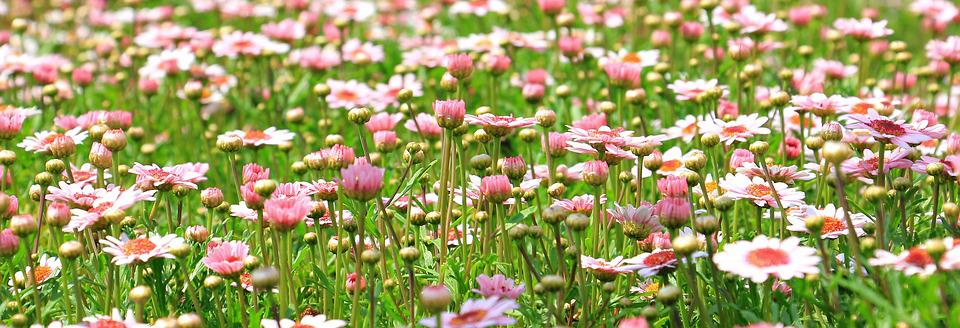
Did you know that gardens cover more space than all UK National Nature Reserves put together? This really highlights how important it is to keep your garden fresh and healthy, since they play such a vital role in supporting your local ecosystem.
If you’re looking for a way to make your lawn more ‘easy on the eye’ whilst turning it into something beneficial for pollinators, one of the best ways to achieve this is by growing flowers in your garden.
Cultivating a wildflower meadow has many advantages; it helps to support pollinators, and helps assists in sustaining insects that contribute to pollinating crops. Ultimately, it will result in a luscious garden, filled to the brim with an array of unique colours and textures.
So, what are the best flowers to grow in your grass or lawn?
1. English Daisies
Identification: Each flower has a small rosette of small, thin white petals, surrounding a bright yellow centre
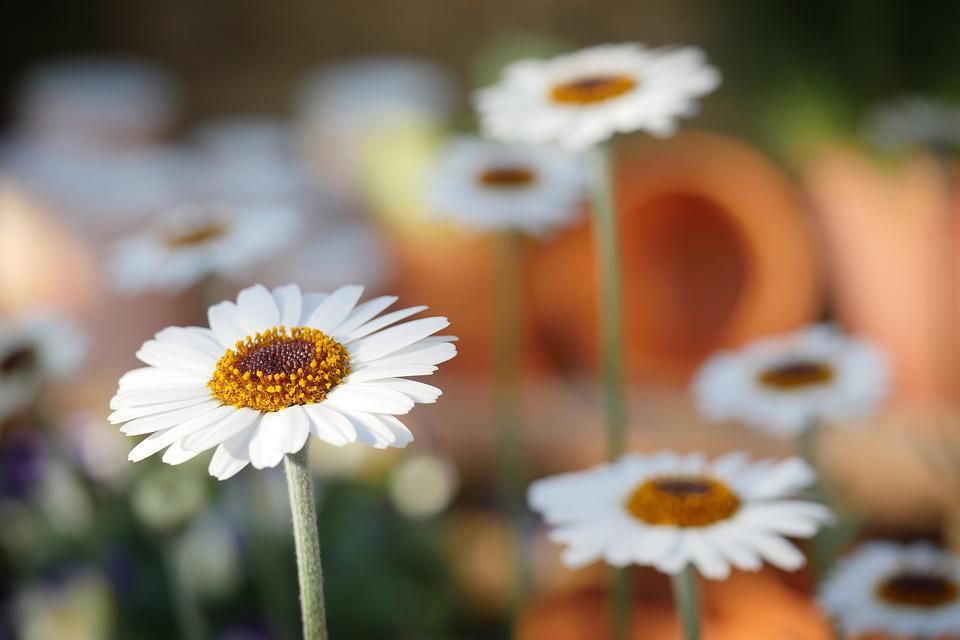
- English Daisies are some of the most well-known flowers in the UK for brightening up the UK's green fields and landscapes
- Daisies begin blooming in the early summer and continue to bloom through to autumn
- Daisies thrive in both wet and dry climates, and sunny or shady areas (perfect for the temperamental UK weather!)
- The word 'Daisy' means 'day's eye' - it's an extremely symbolic flower, because they're one of the first to open up to the morning sun every day
- Daisies are extremely versatile - you can use them for decoration, or even eat them in a salad
- If you plant daisies in your lawn, you will attract bees and other pollinators
2. Chamomile
Identification: A disc-shaped flower head that consists of lots of tiny florets
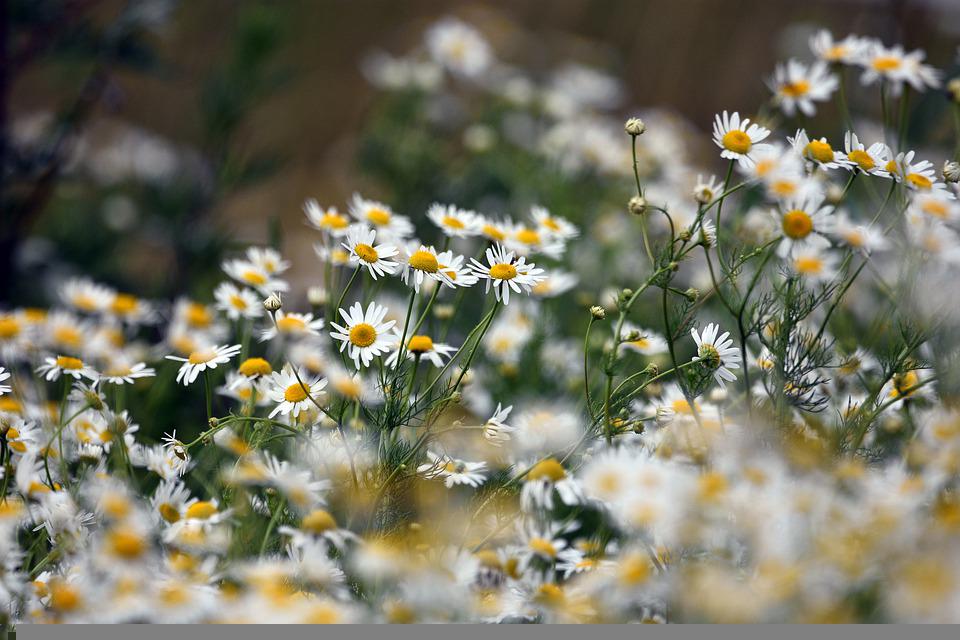
- Chamomile is extremely easy to grow from a seed because it re-seeds itself readily; due to this, it will often come back year after year on its own
- It is recommended to spread the seeds and keep the soil damp when planting chamomiles in your lawn or grass. If you do, they should sprout within a week
- Chamomile is hugely helpful for other plants, especially herbs - if you plant chamomile next to herbs such as rosemary, basil and thyme, their oil production will increase, and this improves their flavour and aroma
3. Thyme
Identification: A low-growing shrub with woody stems and linear leaves
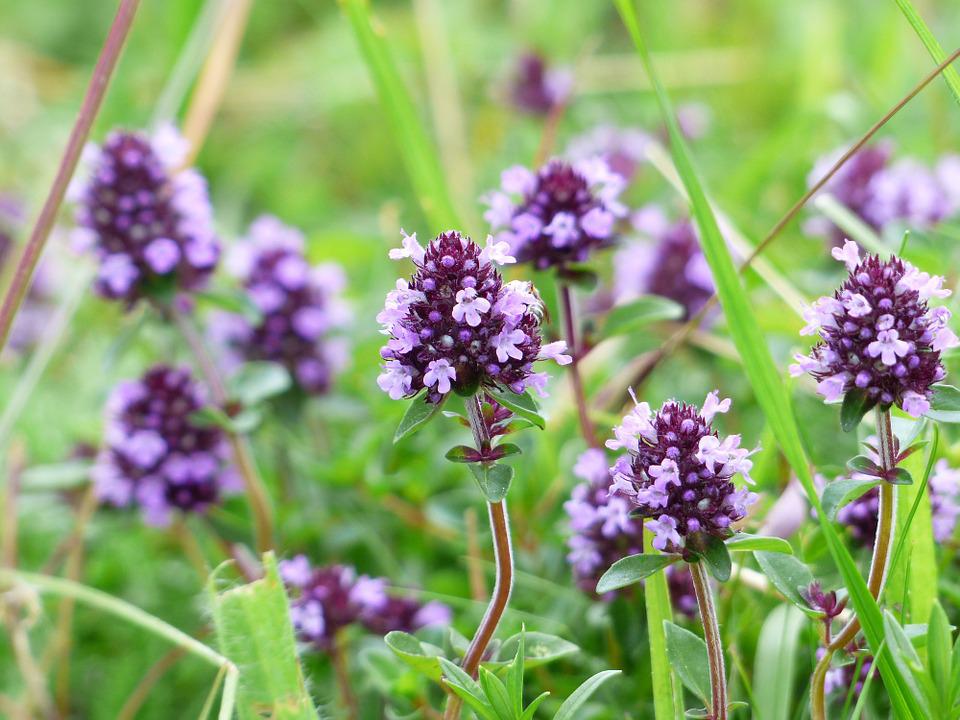
- Thyme may be well-known for its cooking properties, but it also has great benefits when grown in your lawn
- Thyme is a herb with a strong-scent, and it deters and confuses pests; for this reason, it's a great plant to grow around or near your vegetable garden. It's even deer-resistant!
- It's an extremely low-maintenance plant that doesn't need much attention
- Thyme has such a nice aroma, that it was even used as a fumigator for early beekeeping in Rome
- It's a symbolic plant: the botanical name 'thymus', tied to the Greek 'thymos', represents strength, courage and spirit
4. Black-eyed Susan
Identification: A large wildflower with a prominent black central cone, surrounded by rich, yellow petal-like rays
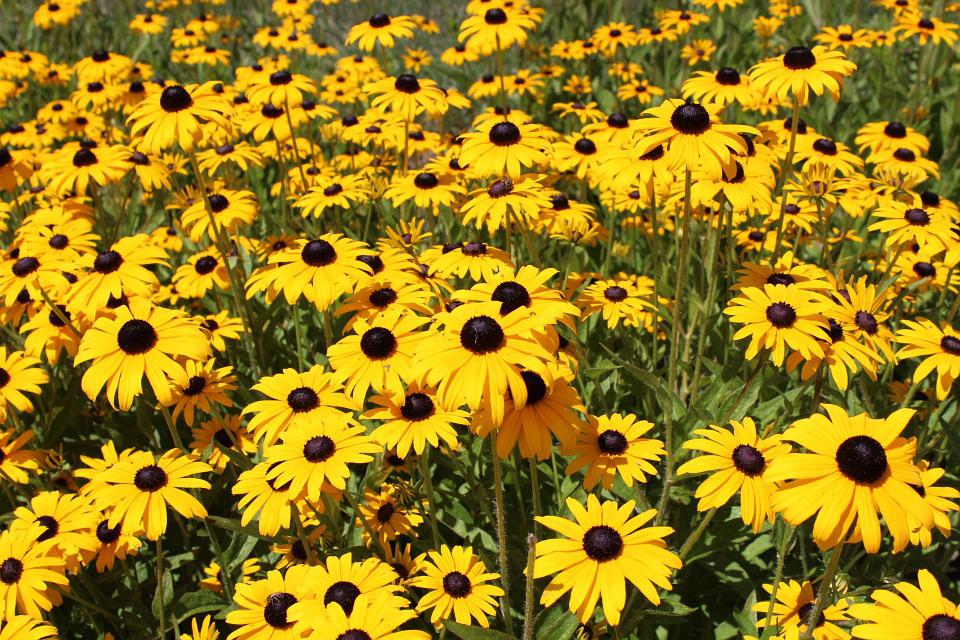
- Black-eyed Susan is the ultimate pioneer plant, and it is extremely unique. As a wildflower that is native to North America, we're very lucky to have access to it over in the UK
- They're known for being the first plants to grow in an area damaged by fire or natural disasters. It is because of this that they symbolise strength and encouragement
- They grow extremely quickly and add charm and colour to any landscape
- They are brilliant pollinators and attract butterflies and bees
- One thing to note is that they do grow rapidly, so be sure to give them enough space to flower
5. Cranesbill
Identification: Mounds of glossy, green foliage topped with cup-shaped flowers of pink and magenta
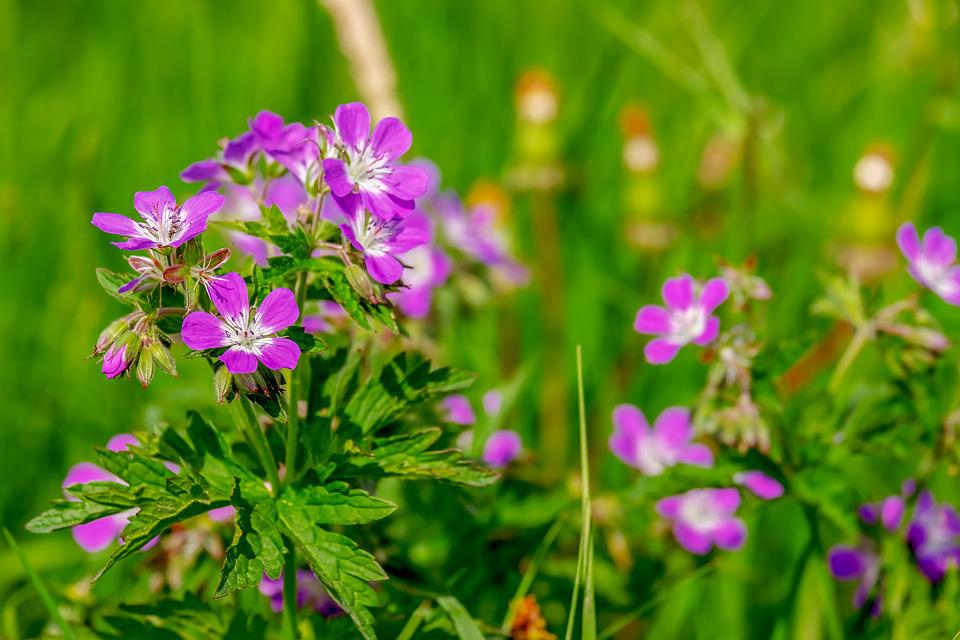
- Once established, these plants require very little care outside of regular watering
- They are reliably hardy and resilient to the weather in the winter
- To make your job easier, you can start the seeds for Cranesbills in spring or summer for flowers the following year
- They're extremely reliable: they'll give you a constant pop of colour in your garden, all summer long
Here at Lawn & Weed Expert we want the very best for your lawn. To help you find bespoke garden services best suited to you, we offer FREE lawn surveys. To get a no-obligation quote that can tell you what kind of services your garden might benefit from and how much you might expect to pay, reach out and contact us today to arrange your free survey.
Free Lawn Survey